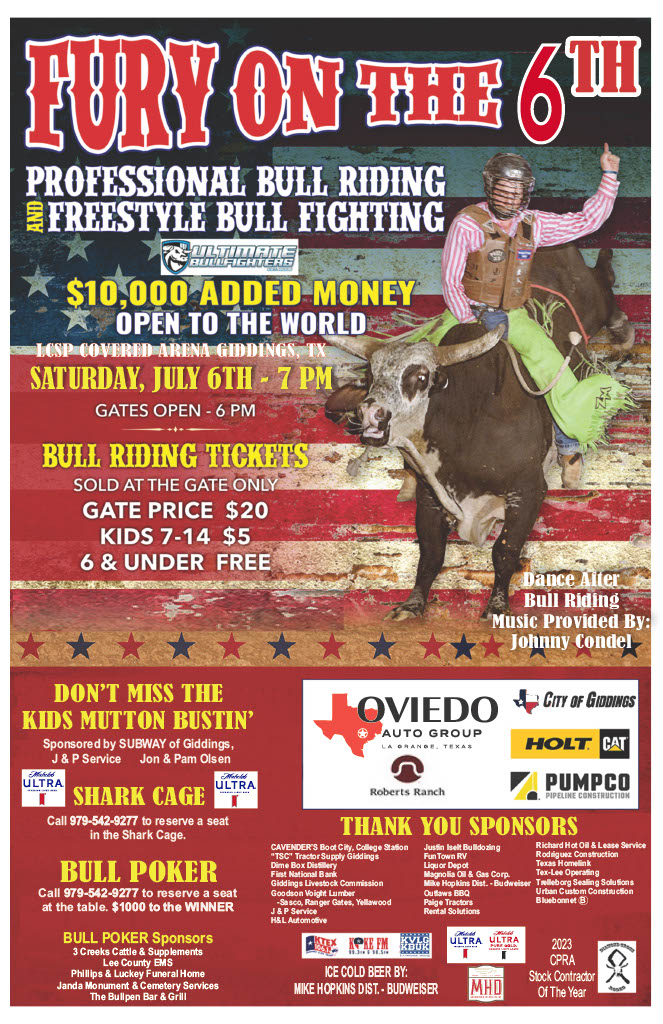T EXAS History
Bob Wills was inducted on Oct. 18, 1968 into the Country Music Hall of Fame, an ironic honor since the King of Western Swing never thought there was anything “country” about his sound.
The first of John and Emmaline Wills’ ten children was born in 1905 near Kosse in the Central Texas county of Limestone. The proud parents named their son James Robert, but everyone called him Jim Rob.
The oldest of the brood was eight years old, when the family relocated to the wideopen spaces of the Panhandle. He did the rest of his growing up on ranches in Hall County.
As the son and grandson of fiddlers, Wills took to the instrument like a fish to water. The youngster must have been something of a rural prodigy because at the age of ten he was good enough to stand in for his drunken father at a local dance.
While still in his teens, Wills was already playing his own special kind of music -- a unique blend of fiddle-driven frontier folk and the blues and jazz he absorbed from black cotton pickers.
Married at 18 to his first wife Edna, Wills became a barber to keep a roof over their heads. With a baby on the way in 1929, the couple moved to Fort Worth where the breadwinner hoped to earn more money cutting hair.
Instead, the expectant father found work more to his liking as a fiddle player in a medicine show. When he quit the next year to form his own band, the future star dropped “Jim Rob” in favor of just plain “Bob,” the name millions of fans would know him by.
Besides its namesake, the “Bob Wills Fiddle Band” was composed of Herman Arnspiger, the guitarist from the medicine show, singer Milton Brown and Brown’s brother Durwood. After their radio debut and first-place in a band competition, the foursome changed their name to the “Aladdin Laddies” in deference to a new sponsor.
The relationship with the lamp manufacturer lasted only a year, but the group was adopted on the rebound by a flour company. As the “Light Crust Doughboys,” they had a daily show on the radio with future governor W. Lee “Pappy” O’Daniels for an emcee.
Milton Brown jumped the politically ambitious flour salesman’ tight ship in 1932. Considered by some the cocreator of Western Swing, a fatal car crash four years later robbed him of the chance to stake an indisputable claim.
Wills’ recurrent battle with the bottle, a problem that plagued him all his life, resulted in his firing by the soonto- be governor. He took singer Tommy Duncan with him and pieced together the nucleus of the “Texas Playboys.”
Encouraged by initial success in Waco, Wills headed north to Oklahoma where he put down permanent roots in 1934. The Playboys became a lunchtime fixture on 50,000watt KVOO, a Tulsa station that broadcast their toe-tapping tunes across the Southwest.
Wills proved to be not only a musical innovator but also an uncanny judge of talent. To go along with silky smooth baritone Duncan, he added Leon McAuliffe on steel guitar, drummer Smokey Dacus, piano player Al Stricklin and guitarist Jesse Ashlock.
To a tireless tinkerer like Wills, The Playboys were never a finished product. As “famoustexans. com” explains, “The earliest incarnations of the group…included trumpets and saxophones, and at various times, female vocalists with an Andrews Sisters style. The band’s makeup and size changed frequently. It could grow into a veritable western symphony or shrink to a tight little fiddle band.”
The icing on the entertaining cake was the band leader himself. Wills’ nonstop patter was meant to do more than amuse the audience. It was his unselfish way of sharing the spotlight with solo performers, which came to include practically every Playboy.
Despite a six-days-a-week radio commitment, Thursday and Saturday live shows at a Tulsa ballroom, frequent tours and recording sessions, Wills found time to marry and divorce four different women between 1936 and 1941. Then in 1942 he walked down the aisle with Betty Anderson, who remained his wife until the day he died.
The 1940 release of “New San Antonio Rose” sold a million copies and established a nationwide fan base for Wills and The Playboys. While most members were in the service during World War II, their leader, discharged for medical reasons, appeared in the first of 19 motion pictures.
The post-war period was Wills’ most productive and profitable. The popular Playboys drew bigger crowds than the Tommy Dorsey and Benny Goodman bands, enabling him to gross $500,000 a year.
What money Wills did not spend, the soft touch gave to friends and total strangers. By the early 1950’s, he was drowning in red ink and owed the IRS a fortune in back taxes.
From then on, Bob Wills’ life was no bed of roses. The struggle to pay off creditors and the government took a terrible toll on his health. Heart attacks in 1962 and 1964 were followed by strokes in 1969 and 1973. The King of Western Swing never regained consciousness after the second stroke and passed away in May 1975.
Read all about the early years of the oil frenzy in “Texas Boomtowns: A History of Blood and Oil” Order your copy for $24.00 by mailing a check to Bartee Haile, P.O. Box 130011, Spring, TX 77393.




